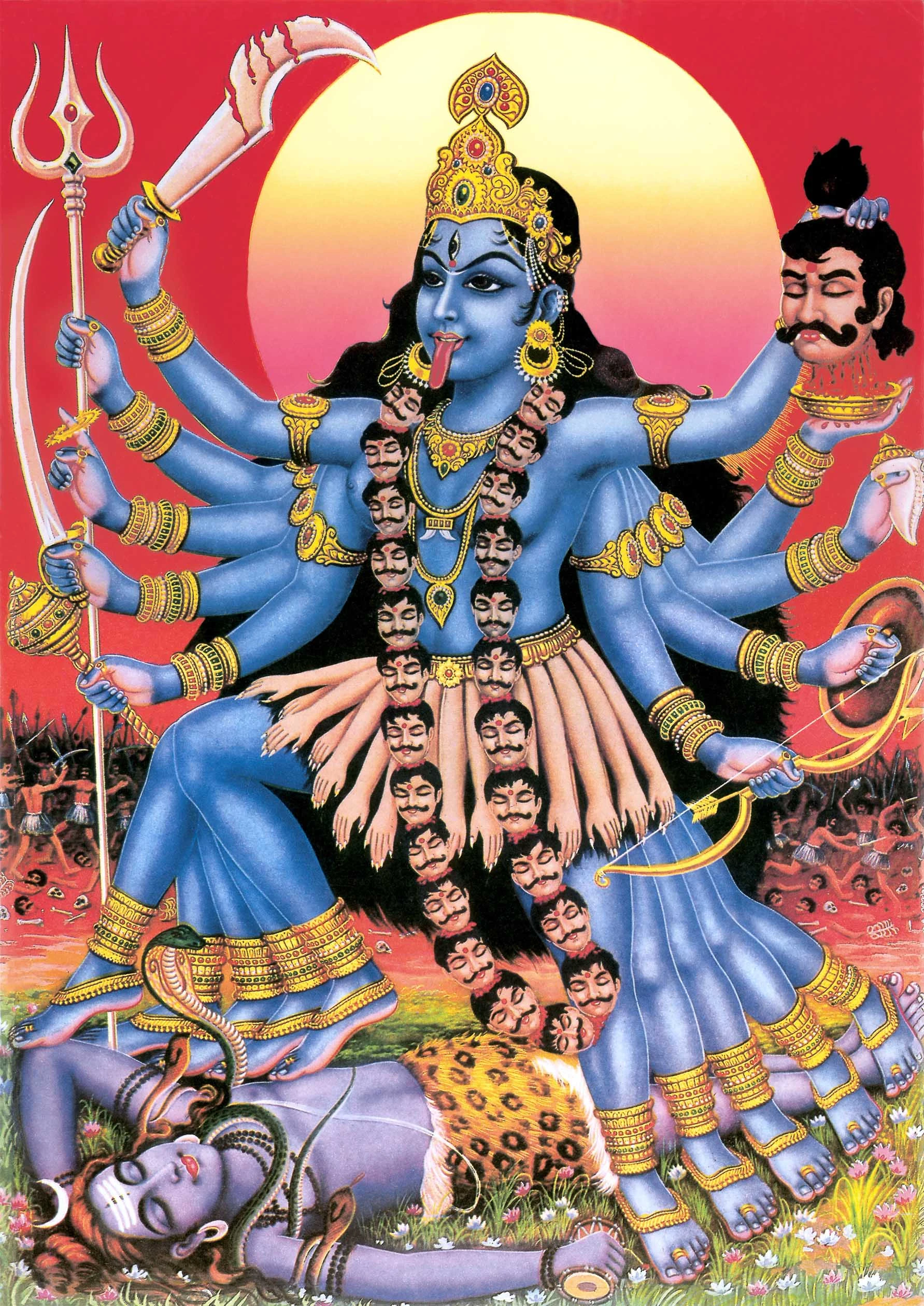
Kali (/ˈkɑːliː/; Sanskrit: काली, IAST: Kālī) or Kalika is a major Hindu goddess associated with time, change, creation, power, destruction and death in Shaktism.Kali is the first of the ten Mahavidyas in the Hindu tantric tradition.Kali’s earliest appearance is when she emerged from Durga. The goddess is stated to destroy evil in order to defend the innocent. Over time, Kali has been worshipped by devotional movements and Tantric sects variously as the Divine Mother, Mother of the Universe, Principal energy Adi Shakti.Shakta Hindu and Tantric sects additionally worship her as the ultimate reality or Brahman.She is also seen as the divine protector and the one who bestows moksha, or liberation.Worshipped throughout South Asia but particularly in Nepal, Kashmir, South India, Bengal, and Assam, Kali is both geographically and culturally marginal.
“Kaali” can have different meanings depending on the context. Here are a few possibilities:
- Kaali (काली): In Hindi and Sanskrit, “Kaali” is the feminine form of the word “Kala,” which means black or dark. It is often associated with the Hindu goddess Kali, who is a powerful and fierce deity.
- Kaali (காளி): In Tamil, “Kaali” can refer to the goddess Kali or be used as a personal name.
- Kaali (കാളി): In Malayalam, “Kaali” can also refer to the goddess Kali or be used as a personal name.
- Kaali (ਕਾਲੀ): In Punjabi, “Kaali” is often used to refer to something black or dark.
- Kaali (કાળી): In Gujarati, “Kaali” is also used to describe something black or dark.
If you have a specific context in mind or if there’s additional information you can provide, I can offer a more accurate explanation.
